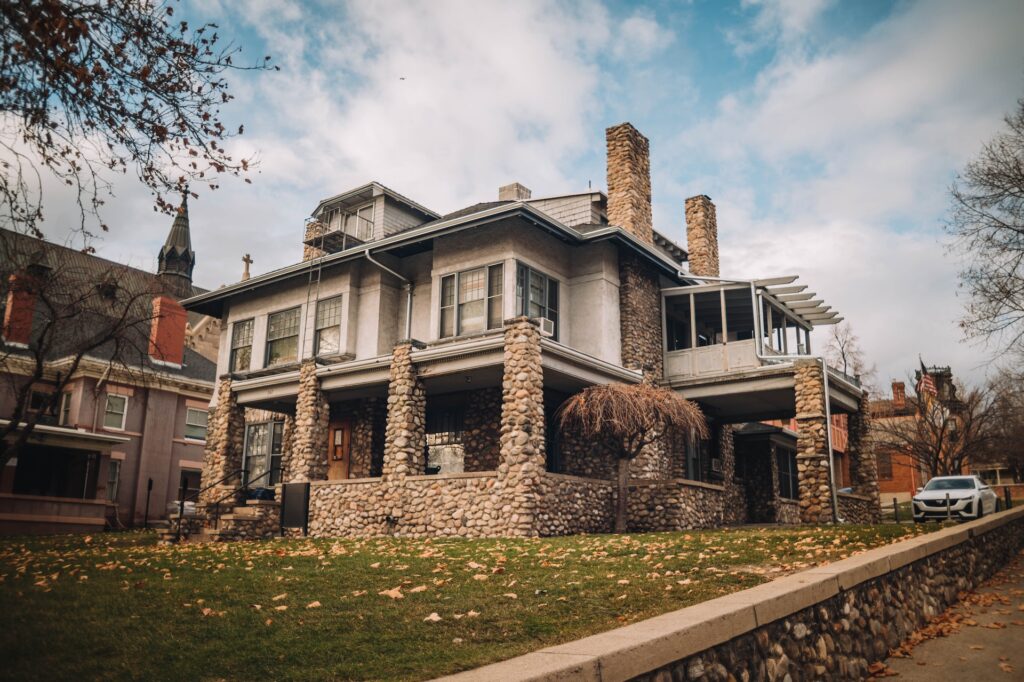House Flipping in Atlanta: How to Find, Finance, and Flip Properties for Profit
House flipping has become a popular investment strategy in Atlanta, with investors seeking to capitalize on the city’s dynamic real estate market. Successfully flipping houses involves finding the right properties, securing financing, and executing profitable renovations. In this article, we’ll provide a comprehensive guide on how to find, finance, and flip properties for profit in Atlanta.

Research Atlanta’s Real Estate Market
Before diving into house flipping, it’s crucial to understand Atlanta’s real estate market. Study market trends, neighborhood dynamics, property values, and rental demand. Pay attention to areas experiencing growth and those with potential for appreciation. Online resources, real estate forums, and local market reports can provide valuable insights.
Establish a House Flipping Budget
Creating a detailed budget is essential for successful house flipping. Consider all expenses, including property acquisition costs, closing costs, renovation costs, holding costs (mortgage payments, utilities, insurance, taxes), marketing expenses, and selling costs (real estate agent commissions, closing costs). Leave room for unexpected expenses, as renovations often uncover hidden issues.
Find Distressed Properties
The key to profitable house flipping is finding distressed properties with potential for improvement. Here are some methods for locating such properties:
- MLS Listings: Search the Multiple Listing Service (MLS) for foreclosures, short sales, and properties listed as “fixer-uppers.”
- Real Estate Wholesalers: Connect with local real estate wholesalers who specialize in finding distressed properties and selling them at a discounted price.
- Auctions: Attend foreclosure auctions or online auctions to bid on distressed properties.
- Direct Marketing: Send letters or postcards to property owners in targeted neighborhoods expressing your interest in buying distressed properties.
- Networking: Build relationships with real estate agents, contractors, and other investors who may have leads on distressed properties.
Conduct Property Analysis
Thoroughly evaluate potential properties to assess their profit potential. Consider factors such as location, market demand, property condition, repair costs, and potential after-repair value (ARV). Calculate your expected return on investment (ROI) to ensure it meets your financial goals. Consult with a real estate agent or appraiser for a professional opinion on property value and renovation estimates.
Secure Financing
To fund your house flipping project, explore various financing options:
- Cash: If you have sufficient capital, using cash eliminates the need for financing and can strengthen your negotiating position.
- Hard Money Loans: These short-term, asset-based loans are specifically designed for real estate investors. They have higher interest rates and shorter repayment terms but offer faster approval and flexibility.
- Private Lenders: Seek out private individuals or companies willing to lend money for your project. Develop a detailed business plan to present to potential lenders.
- Partnerships: Consider partnering with other investors or individuals who can provide the necessary funds in exchange for a share of the profits.
Renovate Strategically
Efficient and cost-effective renovations are crucial for maximizing profits. Develop a renovation plan that balances cosmetic improvements with essential repairs. Focus on areas that provide the most value, such as kitchens, bathrooms, flooring, and curb appeal. Obtain multiple quotes from contractors and ensure they are licensed and reputable.
Obtain Necessary Permits and Inspections
Ensure your renovations comply with local building codes and regulations. Obtain the necessary permits and schedule inspections at each stage of the renovation process. Failure to comply with regulations can result in costly fines and delays.
Market and Sell the Property
Once renovations are complete, it’s time to market and sell the property for a profit. Consider the following:
- Professional Staging and Photography: Present the property in its best light by hiring professional stagers and photographers to create attractive marketing materials.
- Real Estate Agent or FSBO: Decide whether to work with a real estate agent or sell the property yourself (For Sale By Owner). Real estate agents have extensive market knowledge and can help attract potential buyers, but they charge a commission fee.
- Online Listings: Utilize popular real estate websites and platforms to list your property and reach a wide audience. Include high-quality photos, a detailed description, and highlight the property’s unique features.
- Open Houses and Showings: Schedule open houses and private showings to allow interested buyers to view the property.
- Negotiation and Closing: When receiving offers, carefully review each one and negotiate terms that align with your financial goals. Once you’ve accepted an offer, work closely with the buyer, their agent, and a real estate attorney to navigate the closing process smoothly.
Evaluate and Learn from Each Project
After successfully flipping a property, take the time to evaluate the project’s performance. Assess the profitability, identify areas for improvement, and learn from any challenges faced. Use this knowledge to refine your house flipping strategy and make informed decisions on future investments.
Build a Reliable Team
House flipping is a team effort. Assemble a reliable team of professionals, including real estate agents, contractors, appraisers, and attorneys, who can provide guidance and expertise throughout the flipping process. Building strong relationships with trusted individuals can streamline your operations and enhance your chances of success.
Remember, house flipping involves risks, and not every property will yield substantial profits. Conduct thorough due diligence, maintain realistic expectations, and be prepared to adapt your strategy based on market conditions.
House flipping in Atlanta can be a lucrative investment strategy if approached with careful planning and execution. Conducting thorough market research, securing appropriate financing, finding distressed properties, conducting property analysis, strategic renovations, effective marketing, and proper selling techniques are crucial for maximizing profits. By following these steps and continuously learning from each project, you can increase your chances of success in the competitive Atlanta real estate market.
